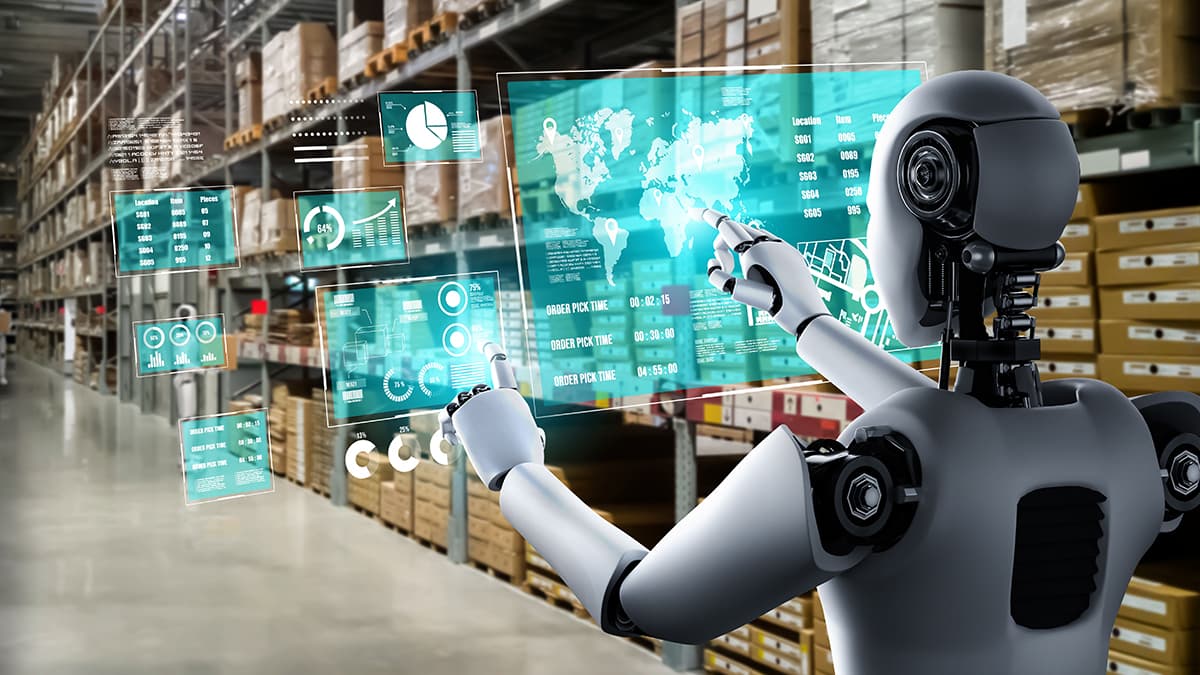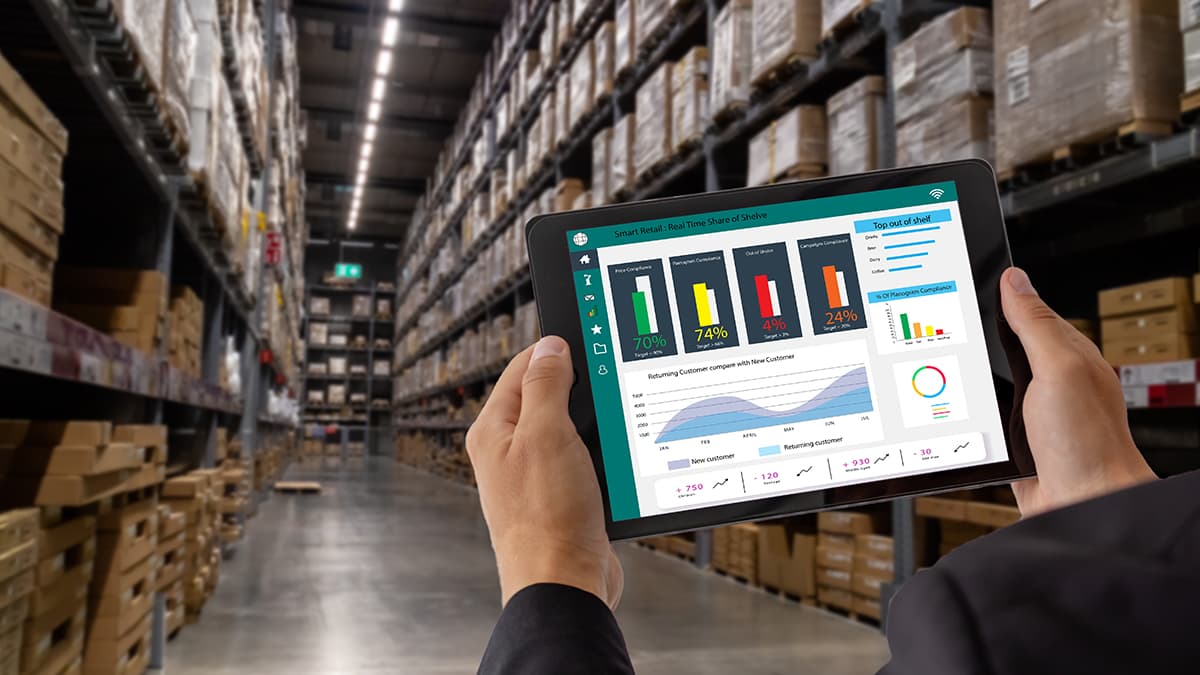
In recent years, supply chain players have been experiencing growing complexities. Challenges such as delayed deliveries, sub-optimal inventory levels, and higher transportation costs have resulted in damages worth billions of dollars. With unprecedented events and expanding product portfolios, organizations seek innovative ways to optimize processes, reduce waste, and improve overall efficiency. Thus, building a resilient supply chain network with more connectivity and visibility is the need of the hour. Artificial intelligence, the pioneer of digital supply chain transformation, is powering innovative solutions to address such challenges.
In this article, we will dive into how AI is transforming supply chain management.
Optimized Inventory and Warehouse Management:
Optimized inventory management can ensure a streamlined flow of products in and out of the warehouse and distribution centers. AI-powered automated systems can prevent inadequate, overstocking, and unexpected stock-outs along with missed sales opportunities.
As per Gartner reports, supply chain players expect the application of machine automation in their processes to double in the next five years.
There are multiple inventory-related variables, such as order processing, packaging, and picking, that can make the overall process highly prone to errors and time-consuming. This is where AI-backed supply chain planning applications can be highly effective in handling mass data. Such intelligent systems quickly analyze and interpret bulk datasets. This enables supply chain organizations to receive timely guidance on supply and demand forecasts.
With predictive analytics, AI can make accurate forecasting to identify slow-moving and obsolete products. This helps reduce costs and product wastage, resulting in a streamlined product schedule and leaner inventory.
Real-time Delivery Tracking and Route Optimization:
AI-backed applications enable real-time monitoring of deliveries. By integrating data from multiple sources, such as sensors and GPS, AI algorithms can provide end-to-end visibility into the product delivery workflow. This enables supply chain players to keep customers informed about their product delivery and address any potential delays or modifications.
AI algorithms can also optimize product delivery routes based on real-time data, including weather forecasts, traffic conditions, and road closures. AI systems can dynamically adjust routes, resulting in reduced delivery times, minimized fuel consumption, and improved efficiency.
Supply Chain Connectivity:
Recent disrupting times have shown how crucial it is to have improved connectivity and visibility across each supply chain node to manage uncertainty. Supply chain digitization, along with AI and blockchain technology, can improve end-to-end integrations and establish robust connectivity among key operations. These aspects include purchase planning, booking, shipment monitoring, invoicing, and payments across customers, vendors, and supply chain partners.
Sustainability:
Artificial intelligence combined with data analytics can have a critical impact in creating more sustainable supply chain operations. Deploying ML with analytics can optimize vehicle routes to reduce miles driven and fuel consumption. AI can also empower supply chain organizations to reduce waste with more accurate forecasting for inventories, demand, and sales.
Enhanced Risk Assessment and Mitigation:
Supply chains are vulnerable to unprecedented events, including natural disasters, opaque information shared by suppliers, or even attacks on consignments. Such causes can impact supply chain operations and create disruptions while making strategic decisions. Predictive analytics backed by ML models can mitigate such risks with fast, automated reporting. AI-backed platforms can refine comprehensive datasets and generate detailed reports across product and supplier bases. Early warning detection and scenario-based simulations enable timely interventions to minimize downtime and prevent disruptions caused by unforeseen events.
Reduced Operations Costs:
AI can quickly analyze and provide solutions for resolving complex distribution challenges. It can immediately identify any opportunity for improving shipment to boost efficiency, reduce logistic costs, and enhance customer satisfaction. This not only lowers overall cost but also helps increase revenue due to improved customer retention.
Wrapping up!
Organizations incorporating AI into their frameworks have observed notable improvements in supply chain management, sustainability, and, more importantly, resilience to disrupting times. Its immense potential for saving costs and maximizing ROI is guiding organizations to navigate towards adopting it as a crucial component in their supply chain strategy.
How does CSM help?
CSM enables businesses to adopt Artificial Intelligence, Machine Learning, and Natural Language Processing systems for unique business needs in their supply chain management. Our AI services empower supply chain players to transform their business processes with custom solutions and address real-world problems.
Contact Us to discover how CSM can help you!
Want to start a project?
Get your Free ConsultationOur Recent Blog Posts

© 2025 CSM Tech Americas All Rights Reserved























































































































